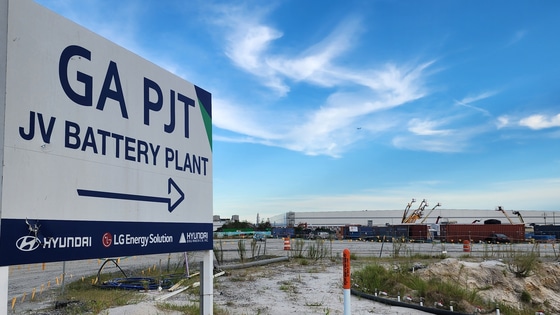U.S. visa roadblock creates speed bump for Korea’s billion-dollar investments
Immigration Raid Disrupts Korean Battery Plant in Georgia

A recent immigration enforcement operation in Georgia has significantly impacted the operations of a joint battery plant established by LG Energy Solution and Hyundai Motor. The U.S. Immigration and Customs Enforcement (ICE) detained approximately 300 Korean workers, raising concerns about the visa challenges faced by Korean companies investing in the U.S. This incident has prompted the Korean government to seek solutions to the ongoing visa issues that threaten the timely completion of critical projects.
Construction Halted Amid Visa Challenges
The ICE raid on September 7 has forced the Savannah-based electric vehicle (EV) battery plant to suspend construction, which was originally scheduled for completion in October. Deputy Prime Minister and Finance Minister Koo Yun-cheol highlighted the urgency of the situation, noting that the plant requires specialized workers for trial runs. “These experts are not seeking permanent employment in the United States but only to conduct prelaunch testing,” Koo explained, emphasizing the need for appropriate visas to facilitate their work.
Industry insiders have expressed concerns that the current visa system is misaligned with the realities of the fast-paced manufacturing environment. Korean companies typically rely on short-term visas to bring in skilled workers from their home country to meet tight deadlines. However, securing these visas has become increasingly difficult, leading to delays in crucial projects. The situation is exacerbated by the rigid bureaucratic processes that often favor lower-cost labor from other countries, leaving Korean professionals at a disadvantage.
In light of the recent detentions, the Korean government is actively engaging with industry stakeholders to address these visa challenges. The government plans to raise the issue in future discussions with U.S. officials, aiming to find a resolution that will support the ongoing investments by Korean firms in the U.S. market.
Mexico votes to charge cruise ships $42 per passenger for port calls
Industry Calls for Visa Reforms
The impact of the immigration raid extends beyond the immediate halt of construction at the battery plant. The incident has sparked a broader conversation about the need for reforms in the U.S. visa system, particularly for skilled workers from Korea. Industry groups have long advocated for a dedicated visa quota for Korean professionals, but these requests have largely gone unaddressed.
SK Group Chairman Chey Tae-won, who also leads the Korea Chamber of Commerce and Industry, has called for urgent attention to the structural issues surrounding visa acquisition. He emphasized the importance of securing a dedicated visa quota to ensure the safety of Korean workers and the smooth operation of businesses in the United States. The challenges are compounded by the fact that many Korean companies are making significant investments in U.S. manufacturing, yet face obstacles in bringing in the necessary talent.
As discussions continue, industry leaders are exploring various proposals, including the creation of a new visa category specifically for Korean professionals. However, legislative gridlock in Congress poses a significant hurdle to these efforts. The “Partner with Korea Act,” which aimed to establish a special E-4 visa category for skilled Korean workers, has yet to advance, highlighting the complexities of navigating U.S. immigration policy.
As the situation unfolds, the future of Korean investments in the U.S. remains uncertain, with industry leaders urging for swift action to resolve the visa challenges that threaten to derail critical projects.
